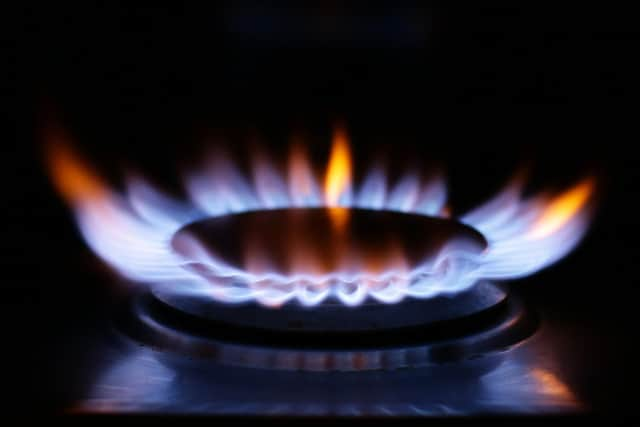Householders disconnecting their own energy supply in Scotland due to fuel poverty
The Lights on to Lights Off report by social enterprise Wise Group found despite a 139 per cent increase in people seeking debt relief support, there has only been a 41 per cent increase in debt relief given out by energy firms, which has resulted in more people disconnecting from the grid year-round.
The report highlighted the case of a former lawyer from Glasgow who spent most of his day in a sleeping bag while being unable to heat his home. Another case involved a pensioner recovering from heart surgery at home with his chronically ill wife who could not keep the house warm.
Advertisement
Hide AdAdvertisement
Hide AdThe findings also included a disparity in the use of energy inefficient and expensive electric heating between households rationing energy and the Office for National Statistics (ONS) average.


Wise Group chief executive Sean Duffy said: “Almost a quarter of Scots live in fuel poverty. As a result, vulnerable people are choosing to self-disconnect their energy supply to save money and, as the temperatures drop, the decision to choose between eating and heating becomes increasingly stark.
”We have seen increasing numbers choosing to disconnect their energy supply or at risk of self-disconnection for a variety of reasons. These households are hidden from the traditional ‘in debt’ description of the ‘vulnerable customer’ because they have chosen to disconnect.”
He added: “Behind these shocking figures are real stories of people wrapped in a duvet all day to keep warm, scared of sending their kids to school smelling of damp, unable to boil the kettle or cook their dinner, terrified of the next energy bill.
“Sadly, many communities in Glasgow, and across Scotland and the north east of England, are already leading the way in energy reduction – as they are simply unable to afford it. Often families in fuel poverty are paying the price of energy inefficiency in their home and higher prices for metered energy use.”
The report said people in fuel poverty had inadvertently become the most environmentally friendly of the population, due to using no fuel.
The smart meter roll out has also hampered fuel-rationing households, with respondents revealing long waiting times, technical hitches and difficulty reading results.
Vulnerable families also tend to pay more for their energy due to the “poverty premium”, being unable to access the best deals and rates for services. It is predicted more vulnerable families will fall into extreme fuel poverty.
Advertisement
Hide AdAdvertisement
Hide AdElectric heating, which can be up to four times more expensive than gas heating, is used in only 4 per cent of all UK homes, but in 54 per cent of fuel rationing households who responded to the research. This may lead to further exclusion as they are left out of plans for the new heat pump systems roll out to replace boilers.
It is also not an issue confined to deprived areas, as 57 per cent of those respondents rationing energy live outside of the top 20 per cent most deprived areas in Scotland, with some living in the least deprived 20 per cent.
Former lawyer Michael spent most of his daily life in a sleeping bag while coping with fuel poverty in his flat in Glasgow. Dealing with mental health and addiction issues that meant he was unable to work, Michael was unable to afford heating or hot water.
He said: “I had nothing, I had nowhere to turn.
"I didn’t think anyone would be able to help and I was reluctant to ask for support. I didn’t even know there was help out there.
"I’ve struggled with my mental health and when I was unable to heat my flat or get hot water, everything seemed harder to cope with. I’d spend the day in my sleeping bag to stay warm.
“You just don’t ever think there’s going to be a way out when you have to live like that. It’s easy to feel like you’ve been forgotten.”
Michael has now secured fuel vouchers and advice from the Wise Group’s HEAT team.
Pensioner Jim, from Greenock, struggled with fuel poverty while recovering from open heart surgery and trying to care for his chronically ill wife.
Advertisement
Hide AdAdvertisement
Hide AdHe said: “We felt cold all the time. It was a real problem for ages and, to be honest, most of the time you just don’t know what to do.
“When it gets that bad, you just can’t see a way out.
"We couldn’t afford to heat the home properly, we struggled with bills and we didn’t know about up to date insulation and efficiency measures beyond a draught excluder by the door. That’s not how you should have to live.”
A message from the Editor:
Thank you for reading this article. We're more reliant on your support than ever as the shift in consumer habits brought about by Coronavirus impacts our advertisers.
If you haven't already, please consider supporting our trusted, fact-checked journalism by taking out a digital subscription.
Comments
Want to join the conversation? Please or to comment on this article.
